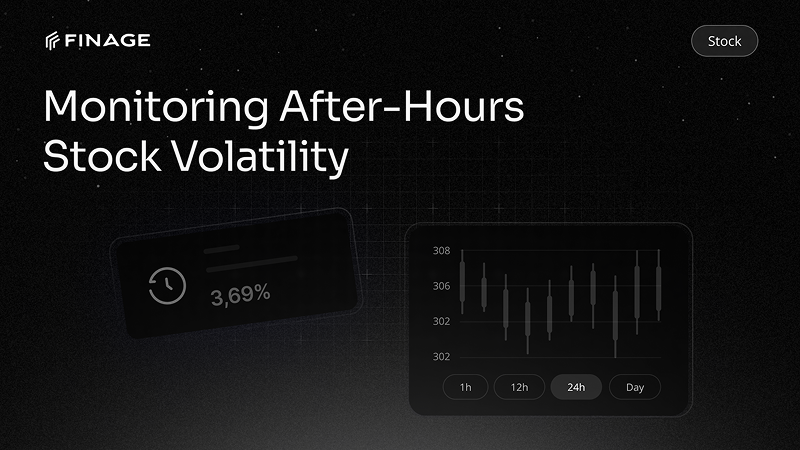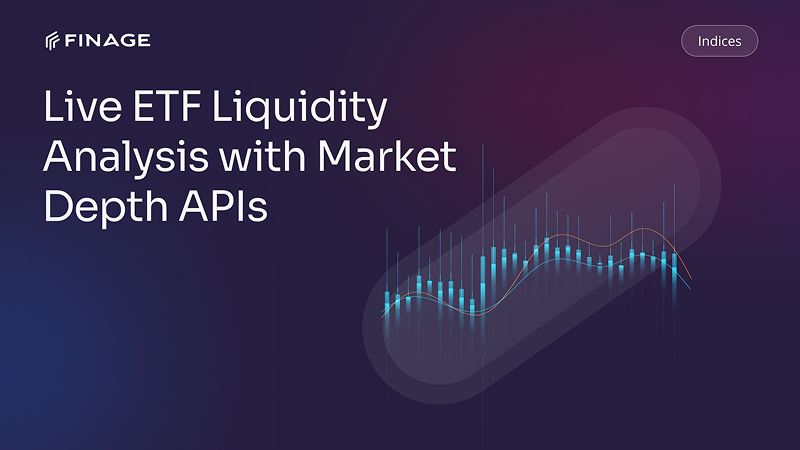Emerging Market Currencies: Hidden Gems in Forex Trading?
8 min read • May 16, 2024

Introduction
The foreign exchange (forex) market is one of the most dynamic and liquid financial markets in the world, with currencies from various countries being traded 24/7. While major currencies like the US Dollar (USD), Euro (EUR), and Japanese Yen (JPY) often dominate trading volumes, there is a growing interest among traders in exploring emerging market currencies. These currencies, often considered "hidden gems," can offer unique opportunities and potentially higher returns due to their volatility and the economic growth prospects of their respective countries. In this comprehensive article, we will explore the potential of emerging market currencies in forex trading, examining the factors that drive their value, the risks involved, and the strategies traders can use to capitalize on these opportunities.
Introduction
Emerging market currencies represent the currencies of developing economies, which are often characterized by rapid economic growth, industrialization, and increasing integration into the global market. Countries like Brazil, India, South Africa, and Mexico are some examples of emerging markets with currencies that attract forex traders looking for diversification and higher returns. These currencies, while more volatile than those of developed economies, can offer significant trading opportunities due to their price movements driven by economic and political factors.
In this article, we will delve into the world of emerging market currencies, providing insights into why they can be considered hidden gems in forex trading. We will discuss the economic and political factors that influence these currencies, the risks and rewards associated with trading them, and the strategies that can help traders navigate this complex yet rewarding market. By the end of this article, traders will have a better understanding of the potential of emerging market currencies and how to effectively incorporate them into their trading portfolios.
Why Trade Emerging Market Currencies?
Sub Description: Emerging market currencies offer unique opportunities due to their volatility, economic growth prospects, and potential for higher returns compared to major currencies.
Trading emerging market currencies can be appealing for several reasons. Firstly, the economic growth prospects of emerging markets can lead to significant currency appreciation. As these economies expand and integrate into the global market, their currencies often gain value relative to major currencies. This growth is typically driven by factors such as industrialization, foreign investment, and export-led growth.
Secondly, the volatility of emerging market currencies can present lucrative trading opportunities. While volatility is often seen as a risk, it also means that there are frequent price movements that traders can capitalize on. This is particularly beneficial for short-term traders and those using technical analysis to identify trading opportunities.
Lastly, emerging market currencies provide diversification benefits. By including these currencies in their portfolios, traders can spread their risk across different economies and reduce their exposure to the economic cycles of developed markets. This diversification can help enhance overall portfolio performance, especially during times when major currencies may be experiencing low volatility or adverse economic conditions.
Factors Influencing Emerging Market Currencies
Sub Description: Several economic, political, and social factors influence the value of emerging market currencies, making them a unique and complex area of forex trading.
The value of emerging market currencies is influenced by a variety of factors, many of which are interconnected. Understanding these factors is crucial for traders looking to navigate the complexities of these markets.
Economic Indicators
Economic indicators play a significant role in determining the value of emerging market currencies. Key indicators include gross domestic product (GDP) growth, inflation rates, interest rates, and trade balances. For instance, higher GDP growth can attract foreign investment, boosting demand for the local currency and leading to its appreciation. Conversely, high inflation can erode the value of a currency, making it less attractive to investors.
Interest rates are particularly important as they influence the flow of capital into and out of a country. Higher interest rates can attract foreign investors seeking better returns on their investments, thereby increasing demand for the local currency. Central banks in emerging markets often adjust interest rates to control inflation and stabilize their currencies, making monetary policy a critical factor for forex traders to monitor.
Political Stability
Political stability is another crucial factor influencing emerging market currencies. Political events, such as elections, policy changes, and geopolitical tensions, can lead to significant currency fluctuations. For example, political instability or uncertainty can cause investors to pull out their capital, leading to a depreciation of the local currency. On the other hand, political stability and pro-growth policies can boost investor confidence and attract foreign investment, strengthening the currency.
Commodity Prices
Many emerging markets are heavily reliant on commodity exports, making their currencies sensitive to changes in commodity prices. For example, countries like Brazil and Russia, which are major exporters of oil and other natural resources, often see their currencies move in tandem with global commodity prices. A rise in commodity prices can boost export revenues, leading to an appreciation of the local currency, while a decline in prices can have the opposite effect.
Capital Flows
Capital flows, including foreign direct investment (FDI) and portfolio investment, also impact emerging market currencies. Increased capital inflows can lead to a higher demand for the local currency, causing it to appreciate. Conversely, capital outflows can put downward pressure on the currency. Factors such as economic prospects, interest rate differentials, and political stability influence the direction and magnitude of capital flows.
Risks and Rewards of Trading Emerging Market Currencies
Sub Description: Trading emerging market currencies involves both risks and rewards, requiring traders to carefully assess their risk tolerance and develop effective strategies.
Trading emerging market currencies can be highly rewarding, but it also comes with inherent risks. Understanding these risks and rewards is essential for traders looking to succeed in this market.
Rewards
- Higher Potential Returns: The volatility of emerging market currencies can lead to significant price movements, offering opportunities for higher returns. Traders who can accurately predict these movements can capitalize on the frequent fluctuations.
- Diversification: Including emerging market currencies in a trading portfolio can provide diversification benefits, reducing the overall risk by spreading exposure across different economies.
- Economic Growth: Emerging markets often experience rapid economic growth, which can lead to currency appreciation. Traders who invest in these currencies can benefit from the economic expansion and increasing global integration of these markets.
Risks
- Volatility: While volatility can present opportunities, it also increases the risk of substantial losses. Emerging market currencies can experience sudden and significant price swings due to economic, political, or social events.
- Political Risk: Political instability, policy changes, and geopolitical tensions can lead to unpredictable currency movements. Traders need to stay informed about the political climate in the countries they are investing in.
- Liquidity Risk: Some emerging market currencies may have lower liquidity compared to major currencies, leading to wider bid-ask spreads and potential difficulties in executing trades at desired prices.
- Economic Risk: Emerging markets can be more susceptible to economic shocks, such as changes in commodity prices, capital outflows, and external debt pressures. These factors can lead to rapid depreciation of the local currency.
Strategies for Trading Emerging Market Currencies
Sub Description: Effective strategies for trading emerging market currencies include fundamental analysis, technical analysis, and risk management techniques.
To successfully trade emerging market currencies, traders need to employ effective strategies that incorporate both fundamental and technical analysis, as well as robust risk management techniques.
Fundamental Analysis
Fundamental analysis involves evaluating the economic, political, and social factors that influence currency values. Traders should monitor key economic indicators, such as GDP growth, inflation rates, interest rates, and trade balances, to assess the health of the economy and predict future currency movements. Additionally, staying informed about political developments and commodity price trends can provide valuable insights into potential currency fluctuations.
Technical Analysis
Technical analysis focuses on using historical price data and chart patterns to predict future currency movements. Traders can use various technical indicators, such as moving averages, relative strength index (RSI), and Bollinger Bands, to identify trends and potential entry and exit points. Technical analysis can be particularly useful for short-term trading strategies, where traders aim to capitalize on quick price movements.
Risk Management
Risk management is crucial when trading emerging market currencies due to their volatility. Traders should set stop-loss and take-profit levels to limit potential losses and secure profits. Diversifying the trading portfolio by including a mix of emerging markets and major currencies can also help spread risk. Additionally, using leverage cautiously and avoiding overexposure to any single currency can mitigate the impact of adverse market movements.
Staying Informed
Given the dynamic nature of emerging markets, staying informed about the latest developments is essential. Traders should follow news sources, economic reports, and market analysis to keep abreast of factors that could impact currency values. Subscribing to financial news platforms and using real-time data feeds can provide timely information and help traders make informed decisions.
Conclusion
Emerging market currencies offer unique opportunities and challenges for forex traders. While these currencies can be more volatile and riskier than major currencies, they also present the potential for higher returns and diversification benefits. By understanding the factors that influence emerging market currencies, assessing the risks, and employing effective trading strategies, traders can capitalize on the hidden gems in the forex market.
In this article, we have explored the potential of emerging market currencies, discussed the factors that drive their value, and highlighted the risks and rewards associated with trading them. We have also provided insights into strategies that traders can use to navigate this complex yet rewarding market. By staying informed and adopting a disciplined approach, traders can enhance their chances of success in trading emerging market currencies.
You can get your Real-Time and Historical Forex Data with a free Fx Data API key.
Build with us today!
Claim Your Free API Key Today
Access stock, forex and crypto market data with a free API key—no credit card required.

Stay Informed, Stay Ahead
Finage Blog: Data-Driven Insights & Ideas
Discover company news, announcements, updates, guides and more


